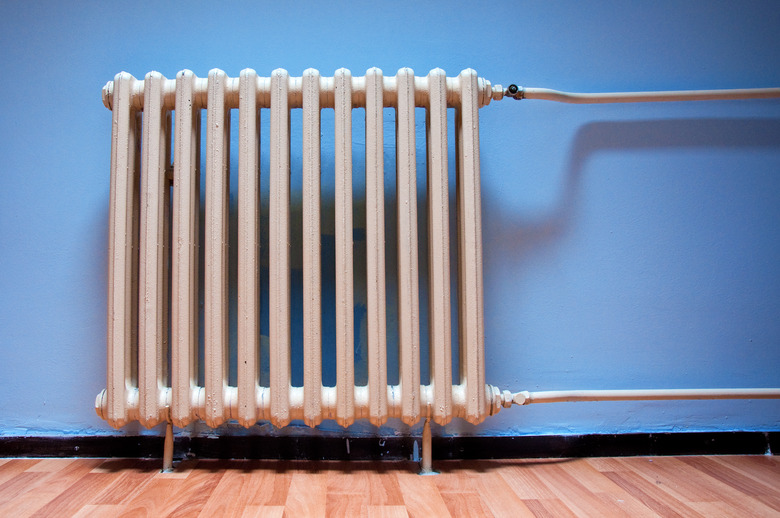What Causes Home Radiator Odors?
We may receive a commission on purchases made from links.
Your home radiator can be prone to some unpleasant odors, particularly if you haven't turned it on for some time. While this isn't usually a cause for alarm, it can be unpleasant and put you off from properly heating your house. The key to dealing with a bad-smelling radiator is knowing the possible causes. Once you know the reason behind the smell, you can treat the radiator accordingly.
Tip
Several radiator problems can cause odors, including dust, mold and a buildup of hydrogen sulfide.
Safety Tips When Working With Radiators
Safety Tips When Working With Radiators
It's important to switch your system off and give it time to cool before you begin work on your radiators. You should also have some absorbent materials and a bucket handy to catch any leaks and avoid causing damage to your home.
Radiator Smells Like It's Burning
Radiator Smells Like It's Burning
If your radiator smells like it's burning when you turn it on after a long break, it's likely that the issue is dust and dirt. Heating up dust, mites and other detritus after they've built up over the summer can cause them to burn off at a rapid rate. If it's just surface-level dust, the smell should naturally dissipate after the matter has burned away. To prevent the smell from happening in the first place, thoroughly clean your radiators before turning the system back on for the season.
Moldy Radiator Odors
Moldy Radiator Odors
If you're noticing a musty, damp, earthy or moldy smell, it could be a sign of a more serious radiator problem. The warm, moist conditions around a radiator can be the perfect breeding ground for mold. If you can smell the mold, it's likely that you'll also be able to see it around the edges of your radiator. Mold not only smells bad and looks unpleasant, but it can also be dangerous to your health — particularly if you have allergies, asthma or any other respiratory condition.
Before starting mold cleanup, make sure all of the radiator valves are properly closed. Leaking valves can mean that your mold issue may come back quickly. Using a bleach and water solution is an effective way to clean up small patches of mold, but it may have a discoloring effect on the walls or floors around your radiator. If this is a concern, you can find a mold cleaner that doesn't contain bleach. Making sure your radiator's valves remain tightly closed and installing some ventilation in the affected rooms can help minimize mold issues in the future.
Hydrogen Sulphide Issues
Hydrogen Sulphide Issues
Another home radiator odor that is particularly unpleasant is one that's reminiscent of rotten eggs or sulfur. It's difficult to miss and really does smell bad, so if you notice even a waft of this scent, it's important to take action quickly.
The egglike smell is the result of a buildup of hydrogen sulfide in your hydronic system. Too much hydrogen sulfide in your system can cause corrosion, which means you'll need to drain your system to deal with the odor.
After you've turned off the system and given it time to cool, turn off the water intake valve, open the valves on all radiators and locate the drain valve for the system. Before opening the drain valve, place a bucket underneath it or attach a hose that's directed outside. If you're using a bucket, you'll need to close the drain valve while you empty the bucket and repeat as needed until the system is drained.
Check the water for any red tinge or bits of rust, which may suggest that corrosion has already begun and you'll need to call an HVAC professional for an assessment. If the water smells bad but doesn't look rusty or discolored, close the radiator valves and main drain valve, turn the water intake valve on to refill the system with clean water and turn the system back on. Once it's up and running, recheck all valves to see if they need to be tightened. You should soon notice that the rotten egg smell is gone.
